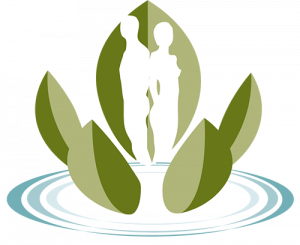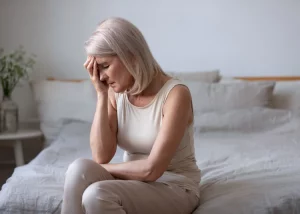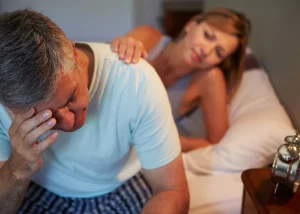More than weight gain or a lack of sex drive, there are risks associated with low testosterone levels.
Physical Symptoms of Andropause
When testosterone levels begin to drop, men lose lean muscle mass and add on the pounds, particularly around the abdomen. The change in body composition has more impact than just a “spare tire.”
Multiple studies show that men with low testosterone are at increased risk of osteoporosis and fractures. Lower testosterone levels are also associated with a loss of muscle mass and strength.
A 2006 report in the Archives of Internal Medicine found that men aged 65 to 99 with lower testosterone levels were more likely to fall and to fall multiple times more than their counterparts with higher testosterone levels. But it’s not just seniors that experience this downturn in testosterone. In fact, the hormonal downturn typically begins in the late 30s or early 40s.

Emotional and Mental Symptoms
While physical changes are obvious, testosterone’s influence on emotional stability and cognition are subtle yet insidious. A 2008 study of approximately four thousand older men in Australia found that those with depression had significantly lower testosterone levels.
In addition, several studies have shown that declining testosterone levels adversely affect memory and problem-solving. When questioned about day-to-day life, many men report a loss of enthusiasm for simple joys, including family and hobbies. Others find it difficult to fully concentrate on tasks at work or home. When combined with decreased libido and/or sexual performance issues, it is not uncommon for men to begin to question their manhood and identity in mid-life.
How do I treat Andropause?
Men are becoming more aware of the importance of hormone balance, not only in the media but in the transformation they see in their spouses or partners who use it. Our practice used to consist almost exclusively of female patients. Now, one in four of our patients is male – many of them are recommended by their spouses or partners!
Clinical studies have shown that gradually restoring deficient testosterone and DHEA levels with bioidentical hormones can generally reverse many of men’s age-related complaints. Furthermore, if a man has excess estrogen levels, treatment should include a bioidentical progesterone in physiologic doses tailored to need. The added progesterone serves to eliminate “estrogen dominance,” thereby decreasing a man’s risk for urinary and prostate problems.
When a man comes into our practice complaining of fatigue, “feeling low,” and a decreased sex drive, we see red flags waving. This man is in andropause and needs restored hormone balance to feel like himself again!





